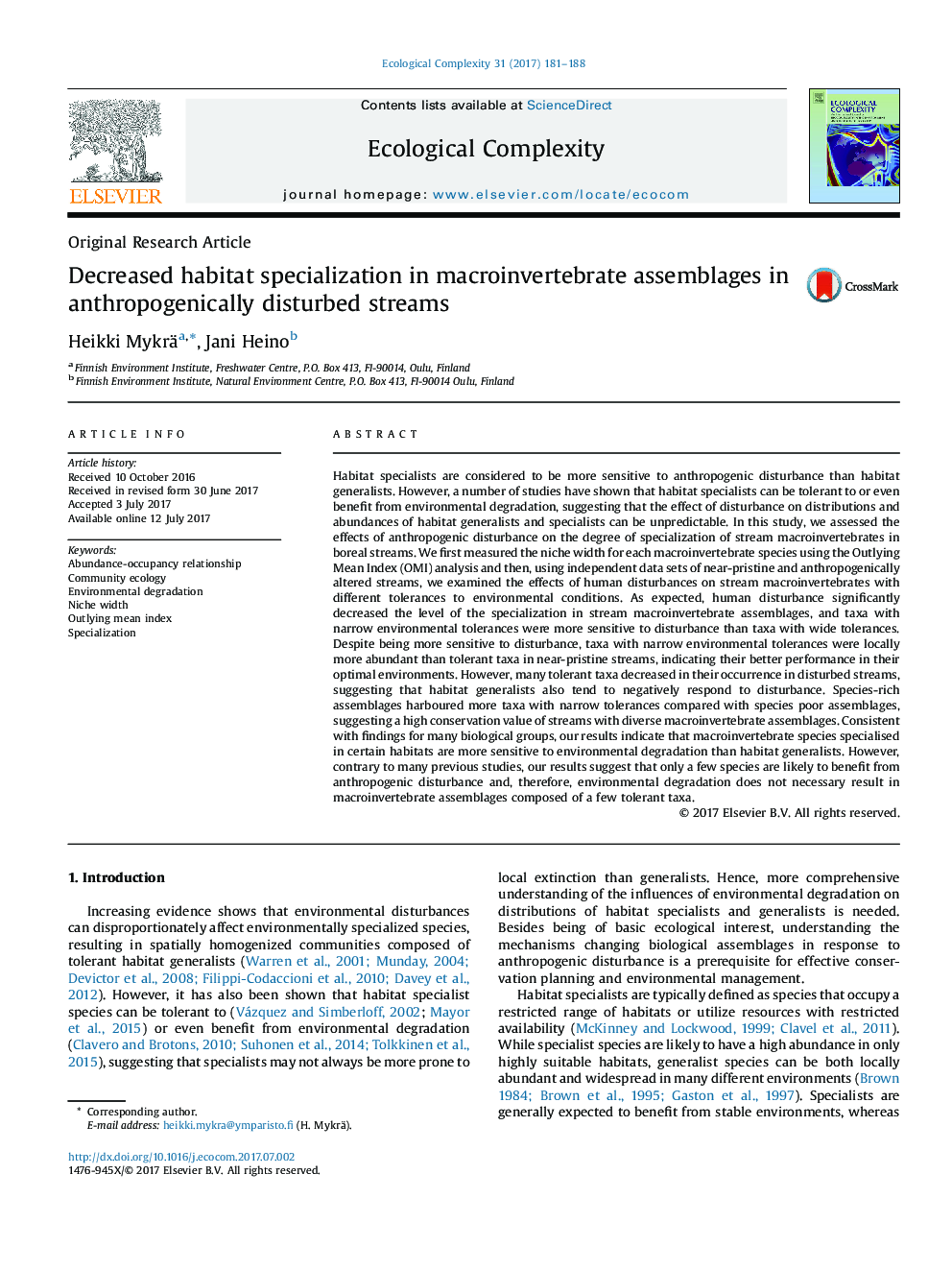| کد مقاله | کد نشریه | سال انتشار | مقاله انگلیسی | نسخه تمام متن |
|---|---|---|---|---|
| 5741271 | 1617083 | 2017 | 8 صفحه PDF | دانلود رایگان |
- Human disturbance decreases the specialization of macroinvertebrate assemblages.
- Specialists are more sensitive to environmental degradation than generalists.
- Species-rich assemblages harbour more specialists than species-poor assemblages.
- Habitat specialist are locally more abundant than habitat generalists.
- Many relatively common generalists are sensitive to environmental degradation.
Habitat specialists are considered to be more sensitive to anthropogenic disturbance than habitat generalists. However, a number of studies have shown that habitat specialists can be tolerant to or even benefit from environmental degradation, suggesting that the effect of disturbance on distributions and abundances of habitat generalists and specialists can be unpredictable. In this study, we assessed the effects of anthropogenic disturbance on the degree of specialization of stream macroinvertebrates in boreal streams. We first measured the niche width for each macroinvertebrate species using the Outlying Mean Index (OMI) analysis and then, using independent data sets of near-pristine and anthropogenically altered streams, we examined the effects of human disturbances on stream macroinvertebrates with different tolerances to environmental conditions. As expected, human disturbance significantly decreased the level of the specialization in stream macroinvertebrate assemblages, and taxa with narrow environmental tolerances were more sensitive to disturbance than taxa with wide tolerances. Despite being more sensitive to disturbance, taxa with narrow environmental tolerances were locally more abundant than tolerant taxa in near-pristine streams, indicating their better performance in their optimal environments. However, many tolerant taxa decreased in their occurrence in disturbed streams, suggesting that habitat generalists also tend to negatively respond to disturbance. Species-rich assemblages harboured more taxa with narrow tolerances compared with species poor assemblages, suggesting a high conservation value of streams with diverse macroinvertebrate assemblages. Consistent with findings for many biological groups, our results indicate that macroinvertebrate species specialised in certain habitats are more sensitive to environmental degradation than habitat generalists. However, contrary to many previous studies, our results suggest that only a few species are likely to benefit from anthropogenic disturbance and, therefore, environmental degradation does not necessary result in macroinvertebrate assemblages composed of a few tolerant taxa.
Journal: Ecological Complexity - Volume 31, September 2017, Pages 181-188
